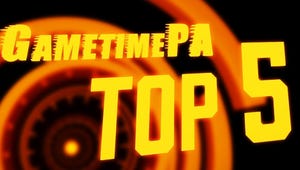PIAA playoffs: Don't split public, private postseasons (commentary)
Let's take a quick quiz. What do all these events have in common?
- A. The Shippensburg football team scores two touchdowns in the last minute, adding a two-point conversion by Cameron Tinner on the last score, to defeat Bishop McDevitt, 29-28, in the District 3 Class 4A semifinals on Nov. 18.
- B. On the same day, the Fairfield girls' soccer team ties a championship game record for goals scored in a 9-4 victory against Shady Side Academy in the PIAA Class 1A final, with Nora Clarke scoring four of the goals.
- C. Turning back the clock the 1999 basketball season, Annville-Cleona's Mark Brandt makes three free throws with no time remaining to help the Dutchmen earn a 54-50 overtime win against Reading Central Catholic in the PIAA Class 2A quarterfinals, on the way to a state title.
The common thread that connects those moments? All were memorable playoff games in which public school teams defeated private school teams, moments that would not happen if Pennsylvania followed the lead of other states and held separate public and private postseason tournaments.
For years, critics have argued that the district and state playoffs should be separate. The playing field, they point out, is not even: Private schools can welcome players from anywhere, while public schools' rosters are limited to athletes within their school district's geographic borders.
Last month, retired Manheim Central football coach Mike Williams, who coached the Barons to 16 District 3 titles and one PIAA title, added his voice to the issue. Williams expressed his concerns over the current system on Twitter and in a story published in LNP, in which he advocated for separating the playoffs into public and private tournaments.
Critics who have called for such a split also point to a disparity in championship victories in the highest profile sports. Private schools make up only about a quarter of PIAA members, but private school teams won four of six football state titles in December, and six out of eight basketball state titles last March (boys and girls combined).
However, if there were separate playoffs, a price would have to be paid.
While there would still be memorable games and achievements, the perception of public schools' postseason achievements would be diminished.
For example, if the Fairfield girls' soccer team were the “PIAA Class 1A public school champion,” the extra qualifier gives the accomplishment less weight.
Adding the words “private school champion” might do that, too, but since the main reason given for separating the playoffs is because private schools have an advantage, more shine would come off of the public school's trophy than the private school's. The assumption would be that the private school champion is automatically better than the public school champion. It won't always be true, but there would be no way to settle the issue or crown one true champion.
Consider last season's basketball championships. In March, only two public schools won state titles, but they were remarkable victories. The Aliquippa boys' basketball team finished off an undefeated season by defeating Mastery Charter North, 68-49, in the PIAA Class 2A final. The Cumberland Valley girls' basketball team downed Cardinal O'Hara, 57-34, for its third straight Class 4A championship.
In a system of separate playoffs, Aliquippa and Cumberland Valley would not have been given the chance to take the floor and prove they were better than the private schools that they not only beat, but dominated, in their sport's biggest stage.
But there's a bigger reason to keep public and private schools united in one postseason, bigger than the perceived value of the championships. There is a lesson here, lest it be forgotten that high school sports are supposed to supplement the athlete's education.
One day, these athletes will be applying for jobs. Many of these athletes will have their college degrees, but will find themselves competing against other applicants. Applicants cannot tell a company to not consider Ivy League graduates. They will either have to prove themselves to be the strongest candidate or lose out on that job position and look elsewhere.
It's better that the athletes learn this lesson now in a district or state playoff game than when they are 23 years old trying to find employment. Sometimes the playing field is not level. It's no one's fault, but sometimes one team's roster is restricted by geographical boundaries and the opponent’s roster is not. Sometimes the name of the college on Person A's resume does not open as many doors as the name of the college on Person B's diploma.
Let's use sports to teach athletes how to best approach difficult challenges. Athletes should learn how to overcome those challenges as often as possible, and also know how to cope when they do not.
David Bohr is a freelance writer for GameTimePA.com.
